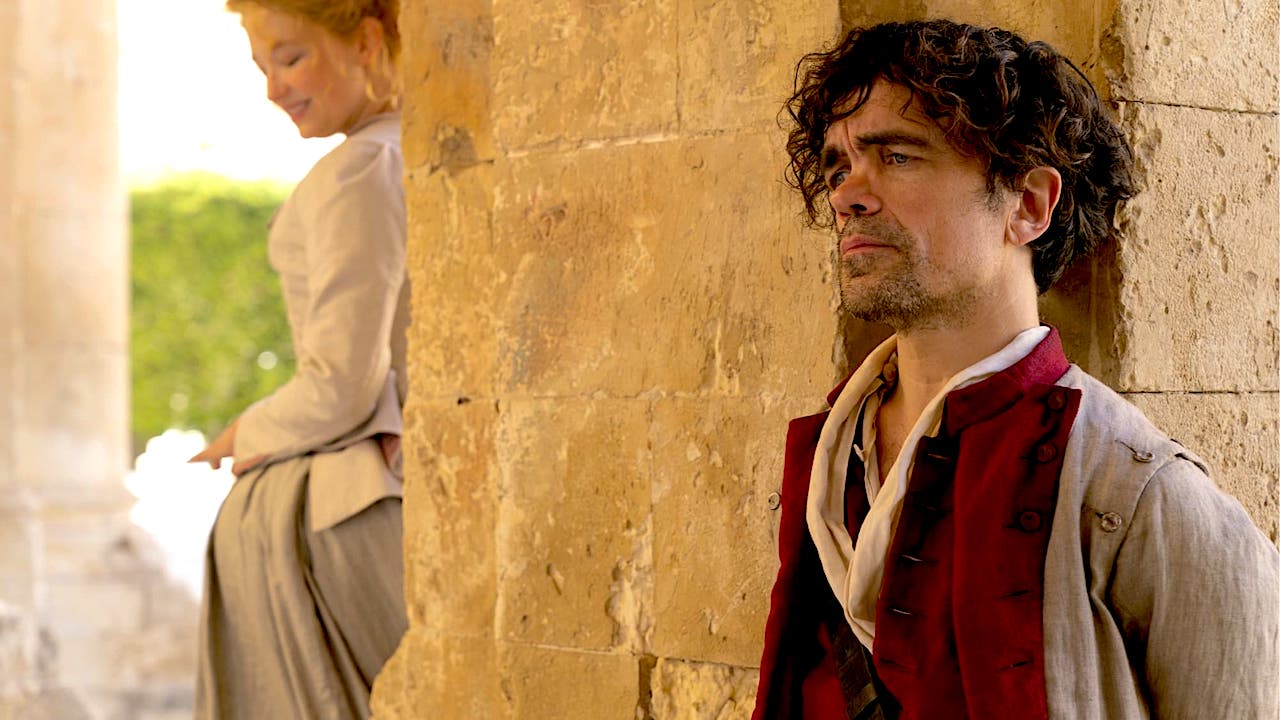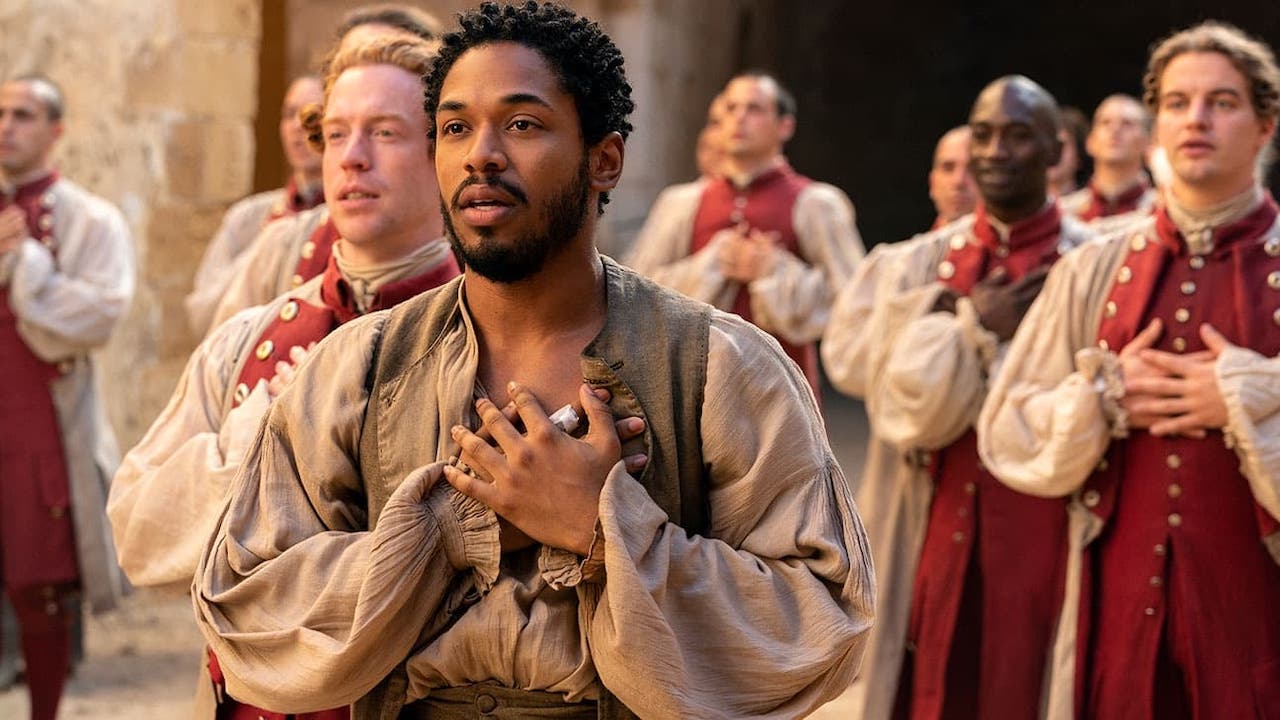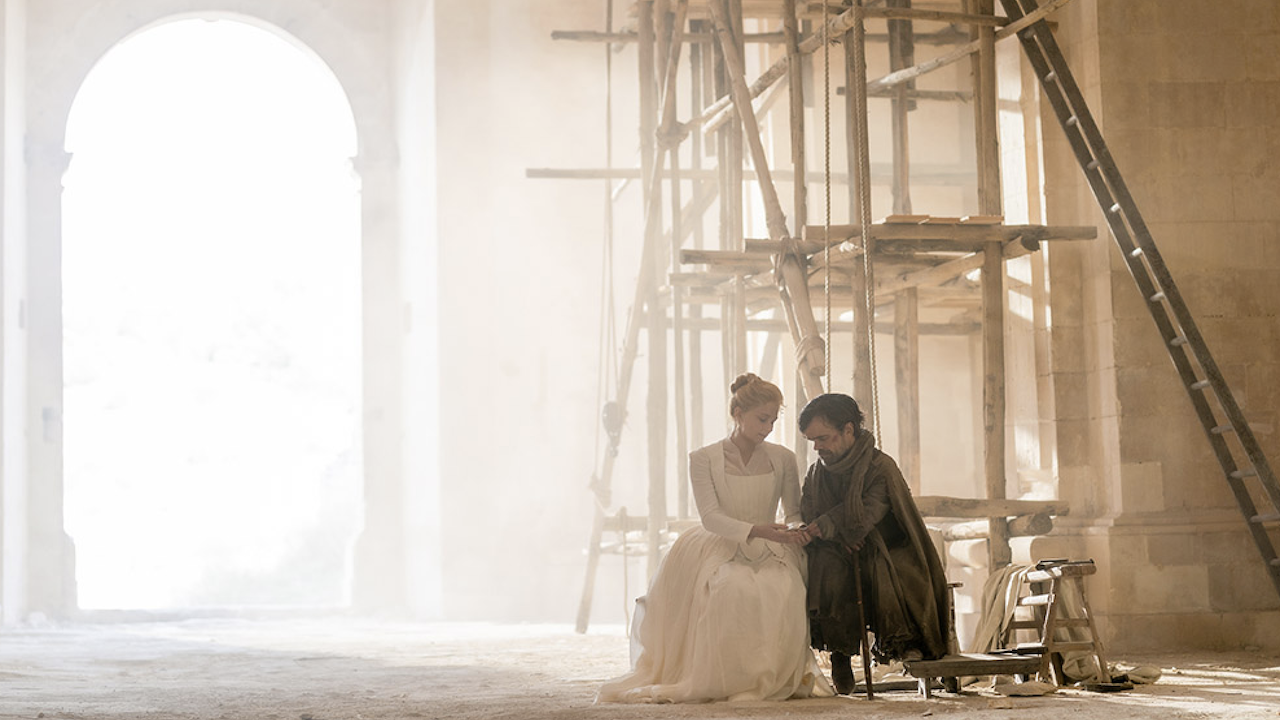It can’t commit to a tone, but lush musical Cyrano has its heart in the right place

You’ve definitely heard the story of Cyrano before, but not with Peter Dinklage as its charismatic, lovestruck hero. Lillian Crawford sings the praises of this saccharine new movie musical.
It’s hardly surprising that Edmond Rostand’s 1897 play Cyrano de Bergerac continues to be relevant into the 21st century. Now more than ever aesthetics are the focal point of attraction, through the rise of Instagram and the dating app renaissance. Today singles might obsess over the smallest blemish, let alone “an obnoxiously large nose”.
The story has been retold many times—from the straightforward 1990 historical drama starring Gérard Depardieu to more recent coming-of-age movies Sierra Burgess Is A Loser and The Half of It. Perhaps the most egregious adaptation is the 1987 movie Roxanne, starring Steve Martin with an absurd prosthetic honker that by the end of the film is inevitably turned into a fetish object.
Joe Wright’s adaptation has been based on the musical Cyrano by Erica Schmidt, with Peter Dinklage reprising the title role. The abuse that Cyrano suffers derives not from his facial structure, but his height—the result of which is to lead him to believe that he cannot confess his love to Roxanne (Haley Bennett) without being ridiculed.
As in the original play, Cyrano instead communicates his love for her through a series of letters offered by the ineloquent but handsome Christian de Neuvillette (Kelvin Harrison Jr.). It’s a tale as old as time, of intellect over beauty, and how social norms can make one doubt oneself without ever even trying. The result, as ever, is that everyone ends up hurt.

At times Cyrano is too saccharine—Europe in the 1640s is surprisingly clean and rosy, with the songs by Aaron and Bryce Dessner feeling as anachronistic as they do in Les Misérables. It’s a historical lens familiar in the filmography of Joe Wright—from glossy trenches in Atonement to Churchill’s impromptu tube ride in Darkest Hour. Wright’s versions of the past play out as if on a stage, literally in the case of his Anna Karenina, the artifice of which lends itself well to musicals.
It’s glorious to see the film’s numbers on such an epic scale. After a lengthy musical drought, the past year has seen In The Heights, tick, tick… BOOM! and West Side Story reviving the genre as one which begs to be seen in a cinema. Cyrano is especially lavish, from the costumes by Massimo Cantini Parrini to the sweeping cinematography by Seamus McGarvey. There’s nothing particularly memorable in the songs themselves, however, except for the melancholic Wherever I Fall performed by soldiers on the French front line.

The lack of complexity in the melodies is exacerbated by Dinklage’s musical ability, which is similar to the speak-singing style of Rex Harrison. That’s not a direct criticism, but while the musical numbers are visually stunning, it emphasises that the strengths of Cyrano largely lie in Schmidt’s dialogue. Dinklage’s romantic readings are utterly heart wrenching, all the more so when he isn’t trying to sing along to a backing track.
There is certainly appeal to the anachronistic instrumentation, with the Dessners bringing out the sound of their band The National in several songs which ground the film’s relevance in the modern world. Similarly, the rapping style of delivery during the musical sequences feels like a deliberate update on the Alexandrine metric structure of Rostand’s original play, brilliantly replicated in a scene where Cyrano frightens a bombastic actor off a stage. In this sense, it has more than a little in common with the style of Lin-Manuel Miranda’s Hamilton.

The lack of wholehearted commitment to one device makes Cyrano feel tonally inconsistent at times, with Wright often uncertain of how to toe the line between comedy and tragedy. The cast largely manage this well, with Harrison Jr. giving a particularly formidable performance as Christian who matures beyond the shallow, handsome soldier previous adaptations show him to be. He and Dinklage make for a compelling double act, and their friendship is truly and deeply felt.
Dinklage has recently criticised Disney for revisiting the unfortunate portrayal of dwarfism in the 1937 film Snow White and the Seven Dwarfs with a live-action remake. Even if the creative elements of Cyrano don’t work perfectly, the centring of Dinklage in the film is undoubtedly vital to its success and the effectiveness of the representational work the actor has done for dwarfism in cinema. His performance here is certainly something Disney, and mainstream audiences, can learn from.




















